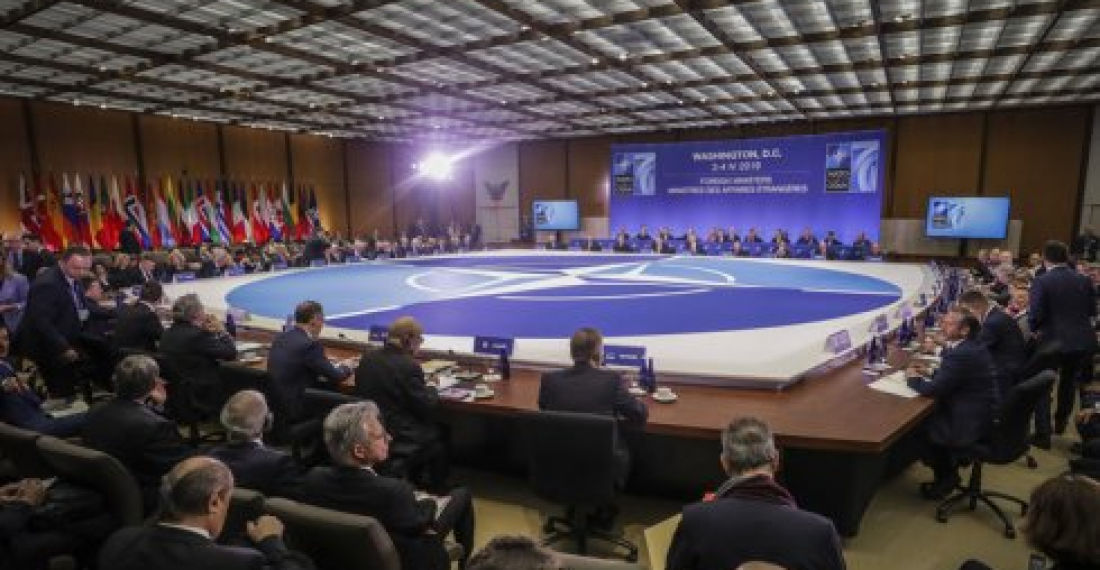Meeting in Washington D.C. on Thursday (4 April 2019), NATO Foreign Ministers agreed on a package of measures to improve NATO's situational awareness in the Black Sea region and strengthen support for partners Georgia and Ukraine. Ministers also reiterated their call on Russia to release the Ukrainian sailors and ships seized near the Sea of Azov.
Earlier, Ministers addressed Russia's continuing violation of the Intermediate-Range Nuclear Forces (INF) Treaty. They called on Russia again to return to full and verifiable compliance with the Treaty, and discussed the way forward. "We will be measured and coordinated in our response, and we have no intention of deploying ground-launched nuclear missiles in Europe," said Secretary General Jens Stoltenberg, adding: "at the same time, NATO will continue to maintain credible and effective deterrence and defence."
The Foreign Ministers Meeting also coincided with the 70th anniversary of the signing of the North Atlantic Treaty, and the establishment of the alliance.
source: coommonspace.eu with nato.int






